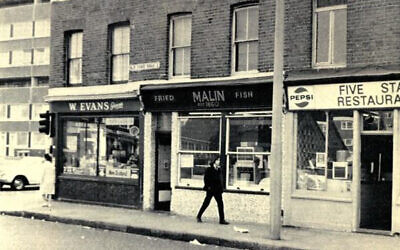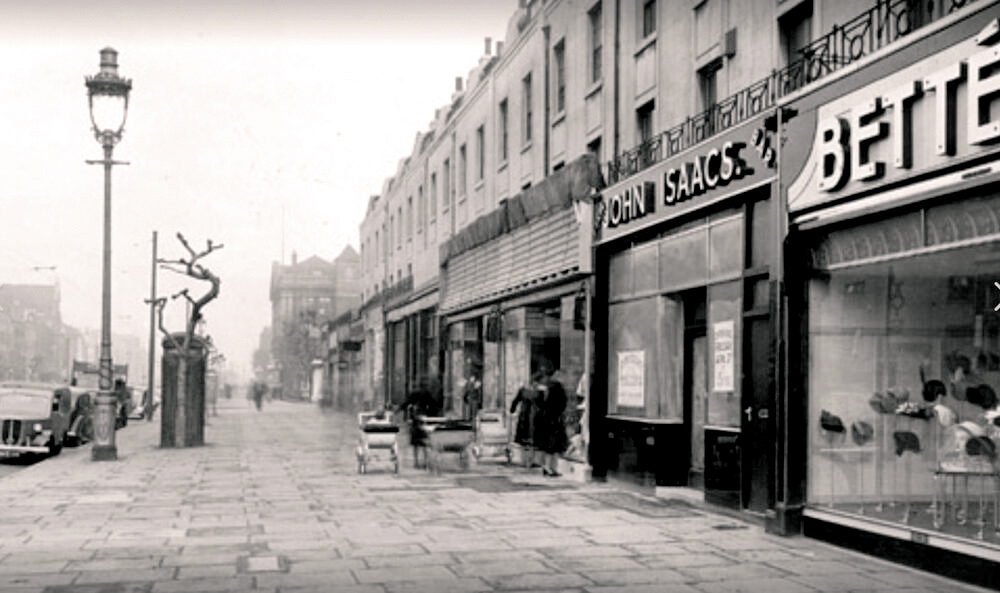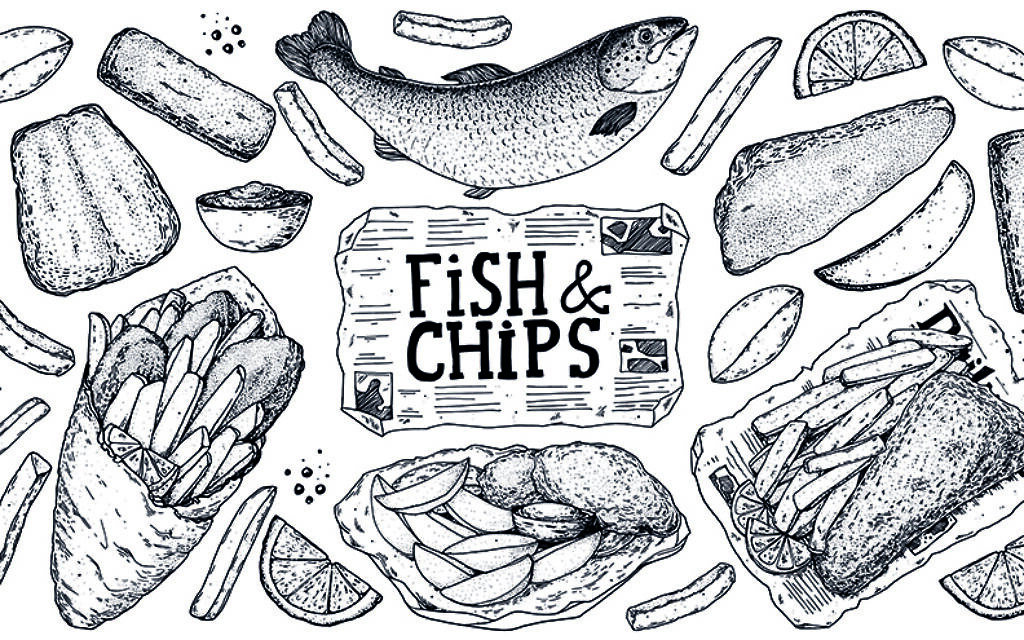Fish and chips: our favourite takeaway is having an identity crisis
It's one of our most-loved traditions - but is it British or is it Jewish?
My parents had a Saturday night ritual: Strictly, X Factor, fish and chips. This put them on a par with the late Queen who reputedly enjoyed the same supper when holidaying at Balmoral. There the similarity ended – HRH would send a footman to the nearby town of Ballater to procure it, while my dad had to trek out in the dark himself to collect a takeaway from Frydays in Mill Hill East, widely reported to be the best fish and chip shop in north west London*. The queues out the door as the Yom Kippur fast goes out each year are legendary (mostly pre-orders).
Fish and chips as a dish is considered to be quintessentially British, but the truth is that the dish found its way here with Sephardic Jewish migrants from Spain and Portugal in the mid-1800s. Matthew Plowright at the Migration Museum in Lewisham says: “Food serves as a powerful conduit for cultural exchange. Understanding the origins of our favourite dishes deepens our appreciation for the journeys and stories behind them.”
 Many believe the first fish and chip shop was opened by Joseph Malin (who was in fact Ashkenazi) in Cleveland Street in London’s East End in 1860. Fried fish was largely associated with the Jewish community in Britain for most of the 1800s – an association that at the time went hand-in-hand with antisemitism. Many people complained about the ‘nauseous odour’ associated with the fish and made disparaging associations between fried fish and the relatively poor regions of London in which these shops and the Jewish communities were concentrated.
Many believe the first fish and chip shop was opened by Joseph Malin (who was in fact Ashkenazi) in Cleveland Street in London’s East End in 1860. Fried fish was largely associated with the Jewish community in Britain for most of the 1800s – an association that at the time went hand-in-hand with antisemitism. Many people complained about the ‘nauseous odour’ associated with the fish and made disparaging associations between fried fish and the relatively poor regions of London in which these shops and the Jewish communities were concentrated.
Get The Jewish News Daily Edition by email and never miss our top stories Free Sign Up
Rock and Sole Plaice in Covent Garden, one of the UK’s oldest fish and chip shops, was founded by Jewish migrants in 1871. On National Fish and Chip Day in June, current owners Ahmet and Ali Ziyaeddin paid tribute to its heritage by wrapping each order in a twist on classic fish and chip paper, with the story of the dish’s journey to the UK printed on each piece.
During the Blitz, the shop was used to host weekly meetings to discuss how to feed Londoners made homeless during the bombing. The shop itself was severely damaged by a bomb blast across the road.

The British government safeguarded the supply of fish and chips during both world wars and it was one of the few foods not subject to rationing. Fish and chips are so embedded in Britain’s national identity that the British soldiers identified each other during the D-Day landings by calling out ‘fish’ and the response (or password) was ‘chips’.
By the mid-20th century, there were over 35,000 fish and chip shops in the UK and the dish became associated with ‘Britishness’ in contrast to the Italian, Chinese and Indian restaurants opening up. Headlines like ‘It Takes a Stiff Upper Lip to Love Fish and Chips!’ and ‘Patriotic Food for Posh and Poor’ were seen. However by now these shops were largely run by Chinese, Greek Cypriot and South Asian immigrants, whose own cuisines were also heavily reliant on frying.
By the 1950s the National Federation of Fish Fryers was marketing it as a British dish and referring to it as ‘Britain’s favourite food’. In 1965 The Beatles were filmed eating fish and chips during the making of a promotional film for their single I Feel Fine.

Henry Mayhew mentions the fried-fish sellers in his book London Labour and the London Poor (1851), where he remarked on the odour of the frying making the sellers quite unpopular. John Isaacs’ fish-and-chip shop opposite Whitechapel Station was where Brady Club members popped in after club for ‘the best chips in London’. Youngsters would congregate outside on the wide pavement and chat and eat their fish and chips wrapped in newspaper.
Charles Dickens mentions ‘fried fish warehouses’ in Oliver Twist (1838) and in 1845 Alexis Soyer, in his book A Shilling Cookery for the People, gives a recipe for ‘fried fish, Jewish fashion’, which is dipped in a batter mix of flour and water before frying. This was indeed the way it was done. From the 15th century, Jews living in Portugal ate peshkado frito – white fish, normally cod or haddock, coated in flour and then fried. Sephardic Jews fried fish on Fridays to eat on Shabbat; the batter was believed to preserve the fish so it could be eaten cold the next day.
Earlier this year Barbara Kirshenblatt-Gimblet wrote in The Forward: “Floured fish fried in oil predates the arrival of Sephardic Jews, as evidenced by recipes in earlier English cookbooks, and the use of oil or butter to fry fish dredged in flour is common to many cuisines. A brief recipe for frying floured fish in oil and preserving it in vinegar even appears in a Roman cookbook thought to have been written by Apicius in the fifth century.”
She says that whereas the Jewish tradition is to eat fried fish cold on Shabbat, the fried fish in British fish and chips is a different dish. “The fish is battered, it may be fried in beef tallow, lard, or oil, and it is served piping hot. It has its own long history, and there are regional differences in type of fish, batter, cooking fat, and condiments, and even the name of the dish varies. Their different histories have been conflated to produce the oft-repeated Jewish origin of British fish and chips. The role of Jews in the early history of England’s fried fish trade and chip shops, however, is a whole other story.”
 In September 2020, in a film by the International Rescue Committee (IRC), Gary Lineker publicly thanked Jewish refugees for bringing fish and chips, “this national delight”, to Britain to counter the UK government’s narrative that the refugees trying to enter the UK today are a threat to the nation. The film was intended to spread a simple message, says president of the New York-based IRC David Miliband, “that when we welcome refugees, they strengthen our communities at every level and sometimes in unexpected ways.”
In September 2020, in a film by the International Rescue Committee (IRC), Gary Lineker publicly thanked Jewish refugees for bringing fish and chips, “this national delight”, to Britain to counter the UK government’s narrative that the refugees trying to enter the UK today are a threat to the nation. The film was intended to spread a simple message, says president of the New York-based IRC David Miliband, “that when we welcome refugees, they strengthen our communities at every level and sometimes in unexpected ways.”
From my parents’ Saturday night ritual, to our annual family breaking of the fast to my own favourite takeaway on a night in, it’s always haddock in matzo meal. That, to me, is Jewish fish and chips.
*as voted by members of The Restaurant Club on Facebook.

Thank you for helping to make Jewish News the leading source of news and opinion for the UK Jewish community. Today we're asking for your invaluable help to continue putting our community first in everything we do.
For as little as £5 a month you can help sustain the vital work we do in celebrating and standing up for Jewish life in Britain.
Jewish News holds our community together and keeps us connected. Like a synagogue, it’s where people turn to feel part of something bigger. It also proudly shows the rest of Britain the vibrancy and rich culture of modern Jewish life.
You can make a quick and easy one-off or monthly contribution of £5, £10, £20 or any other sum you’re comfortable with.
100% of your donation will help us continue celebrating our community, in all its dynamic diversity...
Engaging
Being a community platform means so much more than producing a newspaper and website. One of our proudest roles is media partnering with our invaluable charities to amplify the outstanding work they do to help us all.
Celebrating
There’s no shortage of oys in the world but Jewish News takes every opportunity to celebrate the joys too, through projects like Night of Heroes, 40 Under 40 and other compelling countdowns that make the community kvell with pride.
Pioneering
In the first collaboration between media outlets from different faiths, Jewish News worked with British Muslim TV and Church Times to produce a list of young activists leading the way on interfaith understanding.
Campaigning
Royal Mail issued a stamp honouring Holocaust hero Sir Nicholas Winton after a Jewish News campaign attracted more than 100,000 backers. Jewish Newsalso produces special editions of the paper highlighting pressing issues including mental health and Holocaust remembrance.
Easy access
In an age when news is readily accessible, Jewish News provides high-quality content free online and offline, removing any financial barriers to connecting people.
Voice of our community to wider society
The Jewish News team regularly appears on TV, radio and on the pages of the national press to comment on stories about the Jewish community. Easy access to the paper on the streets of London also means Jewish News provides an invaluable window into the community for the country at large.
We hope you agree all this is worth preserving.
-
By Brigit Grant
-
By Laurent Vaughan - Senior Associate (Bishop & Sewell Solicitors)
-
By Laurent Vaughan - Senior Associate (Bishop & Sewell Solicitors)
-
By Laurent Vaughan - Senior Associate (Bishop & Sewell Solicitors)
-
By Laurent Vaughan - Senior Associate (Bishop & Sewell Solicitors)






















